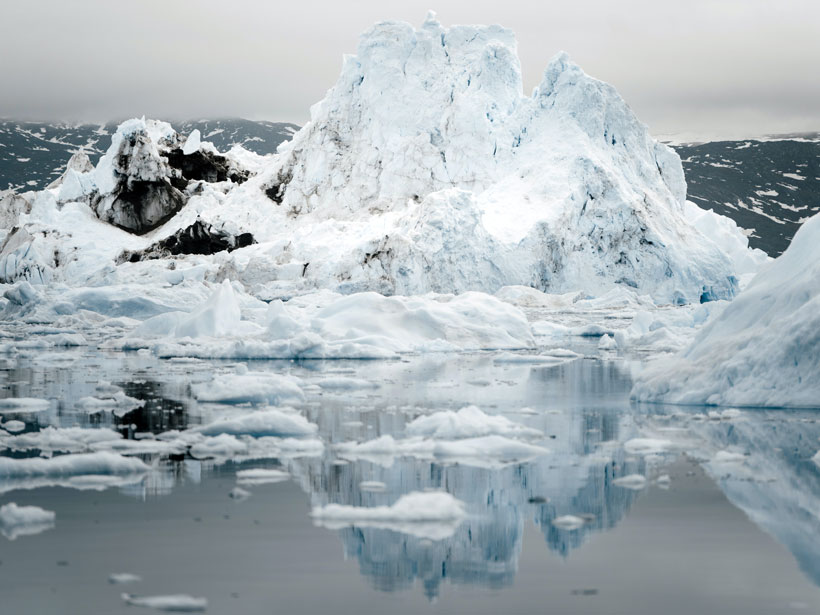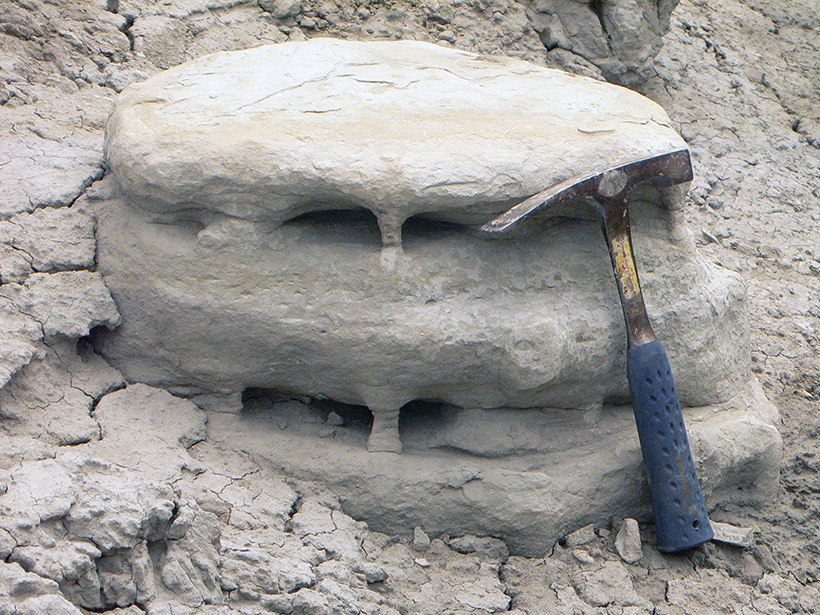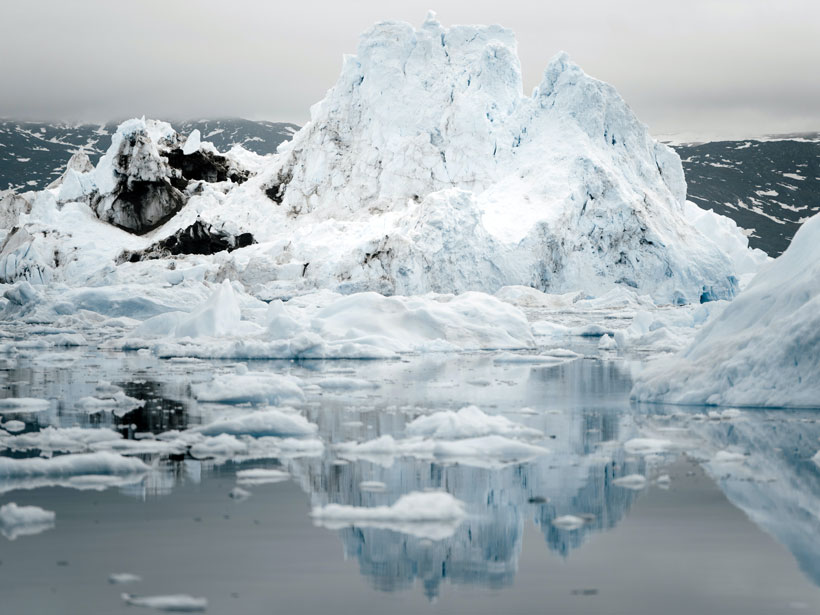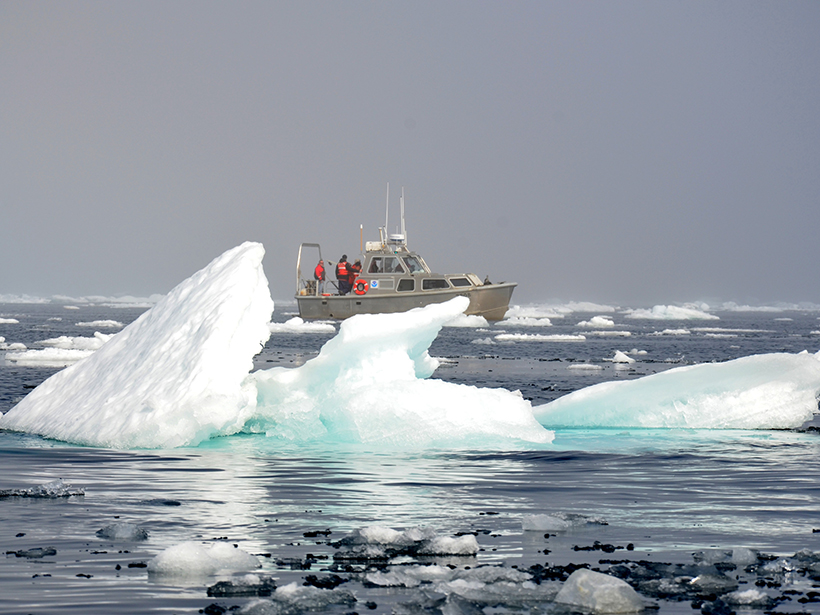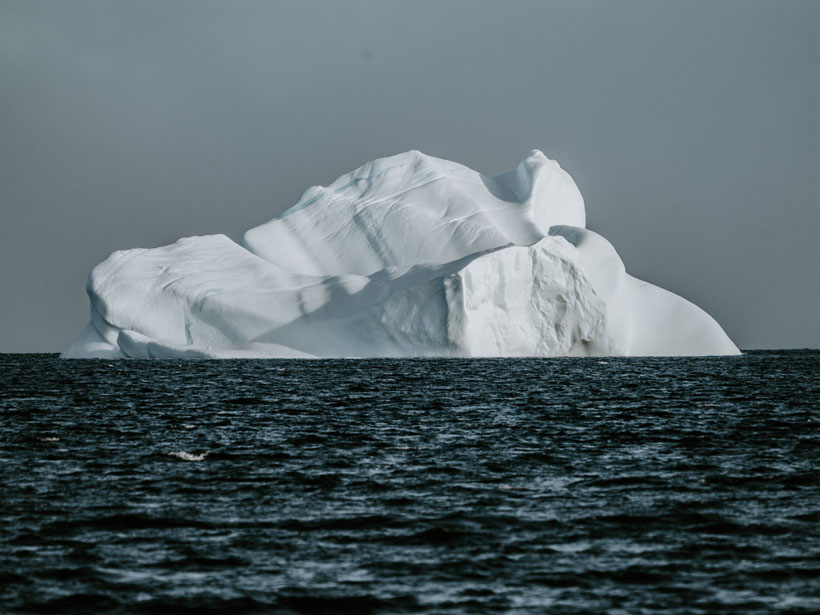Acoustic tools identify the population of “the most important fishery in the Southern Ocean.”
Hannah Thomasy
Hannah Thomasy is a freelance science writer. She has written for OneZero, NPR, The National Post, Hakai Magazine, and Ensia. She is a graduate of the Dalla Lana Fellowship in Global Journalism, and she received her PhD in neuroscience from the University of Washington in 2017.
Cielos Despejados Sin Precedentes Condujeron a un Notable Deshielo en Groenlandia
A los científicos les preocupa que los modelos climáticos actuales no tomen en cuenta el impacto de las condiciones atmosféricas en la capa de hielo del Groenlandia, y en consecuencia, puedan subestimar drásticamente su derretimiento.
A Brighter Future for Coral Reef Islands
Although some islands demonstrate more resiliency than previously thought, island communities may require significant flood-resistant infrastructure to maintain their way of life.
Did Ozone Loss Cause the End Devonian Mass Extinction?
Ozone loss, perhaps as a consequence of a warming climate, may have been responsible for a catastrophic loss of biodiversity.
Oceanic Changes Correlate with Methane Seepage
Changes in sea level and organic carbon burial may have affected seafloor methane seepage over the past 150 million years.
Unprecedented Clear Skies Drove Remarkable Melting in Greenland
Scientists are concerned that current climate models do not fully account for the impact of atmospheric conditions on the Greenland Ice Sheet and, consequently, may dramatically underestimate melting.
El Cambio Climático Está Intensificando las Corrientes Oceánicas del Ártico
El derretimiento del hielo significa que los fuertes vientos del Ártico están creando corrientes más energéticas en el giro de Beaufort.
The Arctic Ocean May Not Be a Reliable Carbon Sink
The rapid changes happening in the Arctic Ocean, including increasing freshwater input, could dramatically affect its ability to store carbon.
Climate Change Is Intensifying Arctic Ocean Currents
Melting ice means that strong Arctic winds create more energetic currents in the Beaufort Gyre.
The Shape of Watersheds
Streams in flatter watersheds have carbon cycles more sensitive to temperature increases.


